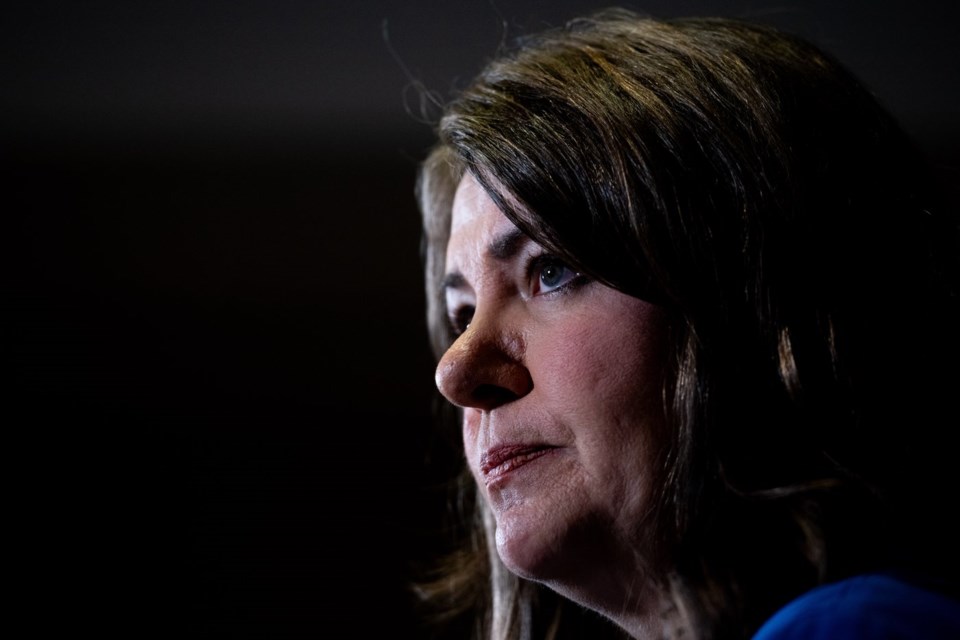EDMONTON — Alberta's government has launched a national ad campaign targeting the federal government's incoming emissions cap for the oil and gas sector.
Premier Danielle Smith said Tuesday it's a de facto production cap that will stifle the economy.
"This, by extension, will cut jobs and revenues across the country, and that should concern every Canadian," Smith said at a news conference in Calgary.
Alberta Environment Minister Rebecca Schulz called the cap "wacko," saying it will lead the province and country into "economic and societal decline" and make every aspect of life less affordable.
The province's $7-million "Scrap the Cap" campaign claims the federal regulations, which could come in draft form later this year, would make "groceries, gas and all of life’s necessities even more expensive."
Smith said the industry cannot absorb the costs of the cap, and if a product is made less available and the price increases, "it's going to increase the cost of everything."
In a statement, federal Environment Minister Steven Guilbeault and Energy and Natural Resources Minister Jonathan Wilkinson accused Smith of using taxpayer money to spread disinformation.
"Repeating a lie does not make it true. Our government’s commitment is to drive down pollution from the oil and gas sector, not to cut production," they said, adding the oil and gas industry recognizes reducing pollution is necessary for their own competitiveness.
"Canadians know that when oil and gas companies are making record profits, they should be doing their fair share and investing back in clean technologies that create good-paying, sustainable jobs for Albertans, all while protecting our environment," they said.
Alberta's campaign is to run television, print, social media and online video ads in Alberta, British Columbia, Ontario, New Brunswick and Nova Scotia until the end of November.
University of Calgary economist Trevor Tombe said he believes the emissions cap is bad policy, but the argument that it would drive up the price of gas — and therefore groceries — is misleading.
Tombe said gas prices are largely determined by taxes, retail markups and margins, and global oil prices.
“There hasn't been any credible analysis suggesting that Canada's emissions cap on oil and gas will affect world oil prices,” said Tombe.
Tombe said it's a fair argument to make that the cap would result in fewer jobs and lower wages in the sector, and he believes the federal policy takes a flawed approach.
Tombe said the most efficient way to lower emissions is by having an identical burden on all sectors, in all regions, so every tonne of emissions faces the same consequence.
At the same time, he said, the emissions cap won't necessarily force lower production.
"Even if costs rise and profits fall, the profit per barrel could still very well be positive, even with higher costs," said Tombe.
Alberta NDP Leader Naheed Nenshi said in a release that Smith's United Conservatives are spending taxpayer dollars to try and influence the next federal election instead of actually solving the problem.
"They got the federal government entrenched in a view that is bad for Alberta and we’re now going to have an emissions cap that may well restrict our ability to increase production going forward," he said.
“You don’t fix that by spending $7 million on advertising in other provinces. You fix it by going to the table."
This report by The Canadian Press was first published Oct. 15, 2024.
Lisa Johnson, The Canadian Press


